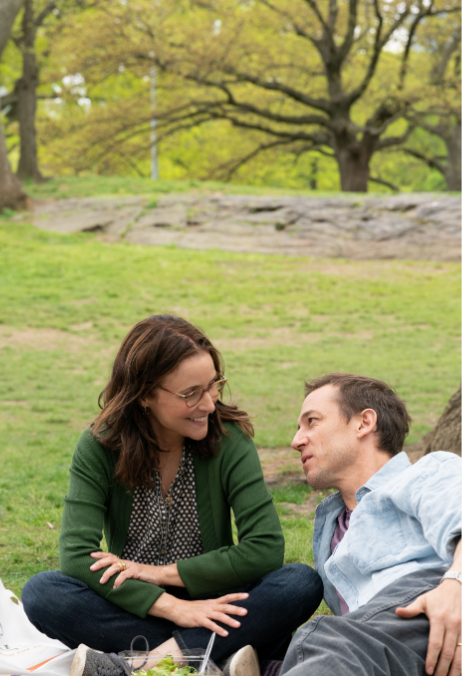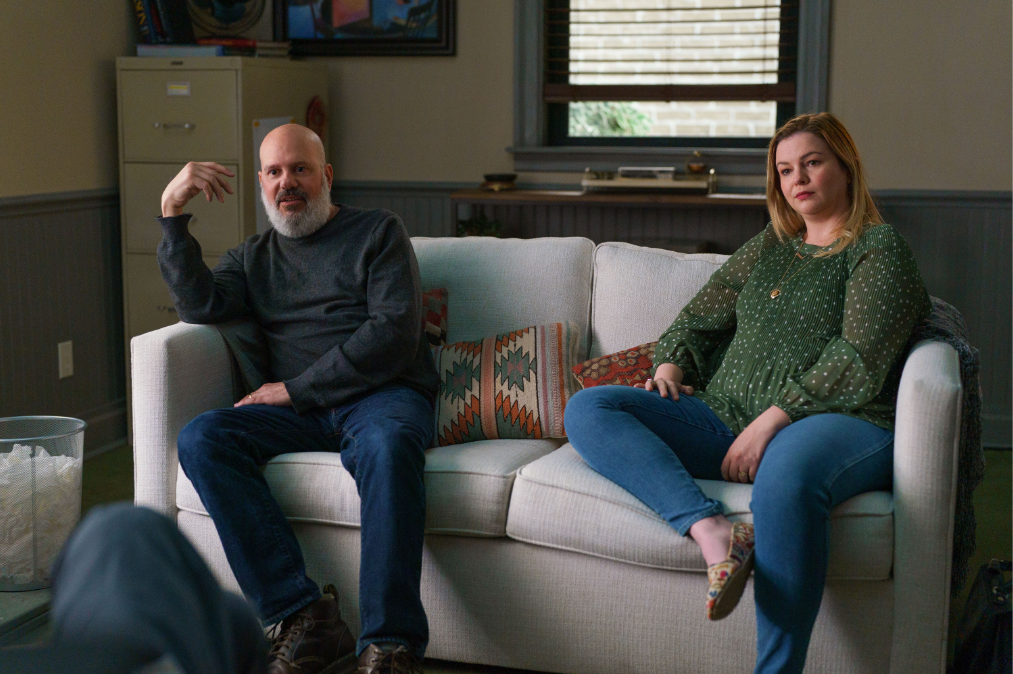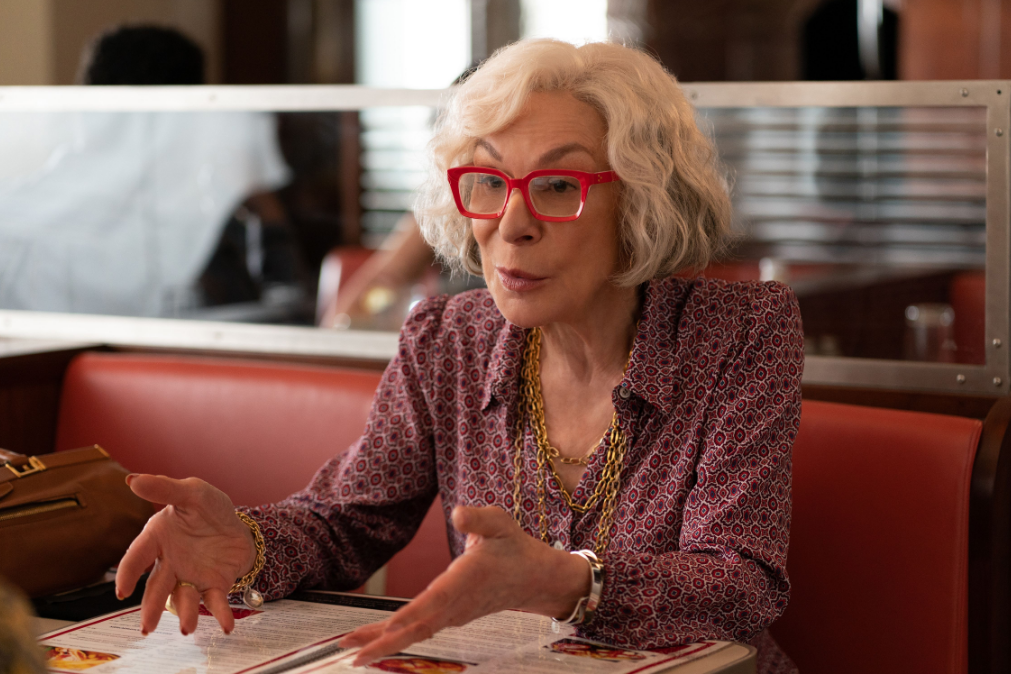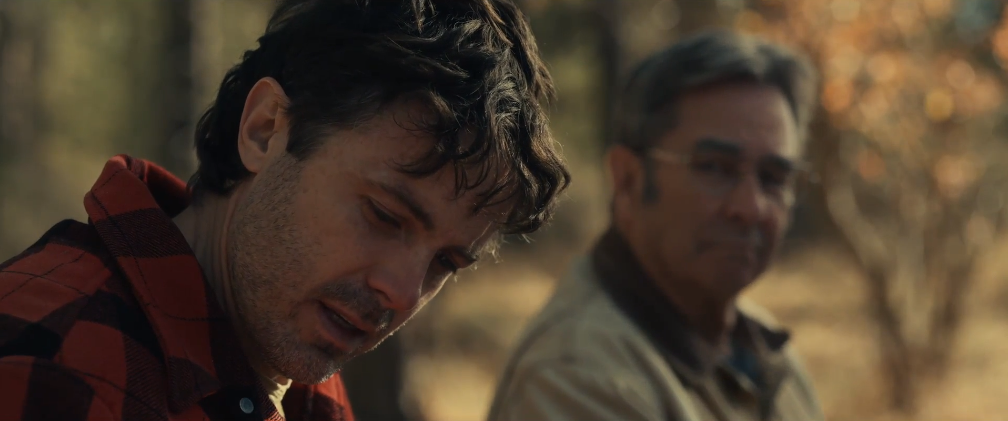(Nicole Holofcener, 2023, USA, rated R, 93 minutes)
Since 1996's Walking and Talking put her on the map, writer-director Nicole Holofcener has been releasing feature films at a pretty steady clip, one every four years on average. That number, however, excludes the fine films she's co-written with other writers and directors, like Marielle Heller's Oscar-nominated 2018 adaptation of Lee Israel's memoir, Can You Ever Forgive Me?, and Ridley Scott's 2021 adaptation of Eric Jager's fact-based novel The Last Duel. Notably, Ben Affleck and Matt Damon wrote the sections focusing on their medieval duelists, while Holofcener wrote the section focusing on Jodie Comer's noblewoman, a victim of sexual assault.
You Hurt My Feelings returns to the realm with which Holofcener is most closely associated: stories of metropolitan, artistically-inclined women (2018's The Land of Steady Habits with Ben Mendelsohn was a male-centric exception). As the 63-year-old has aged, so have her characters, whose lives frequently involve partners, adult children, and elderly parents. If the themes of self-image and class consciousness have remained consistent from film to film, she approaches each one from a different angle.
Her seventh feature hones in on the white lies couples tell each other. Beth (Julia Louis-Dreyfus from 2013's Enough Said), a New York novelist and writing instructor, is happily married to Don (Tobias Menzies, Emmy winner for The Crown's Prince Philip), a therapist. The two share everything to the extent that their son, Eliot (The Montana Story's Owen Teague), an aspiring playwright who works in a cannabis dispensary, finds them a little embarrassing. He's also jealous, because things haven't been going well between him and his girlfriend. His parents make it look easy, but they're so concerned about offering encouragement to each other--and everyone else in their vicinity--that they veer towards the dishonest.
Holofcener contrasts Beth and Don with Beth's sister, Sarah (Enlightened's Michaela Watkins), and her husband, Mark (Succession's Arian Moayad), who do something similar. As far as Sarah knows, Mark thinks she's a terrific interior decorator, and as far as he knows, she thinks he's a terrific actor, and yet they don't agonize over any of this stuff the way Beth does. It could be because they're different people working in different fields, but Holofcener also suggests that a writer's ego is an especially fragile thing, and Don has always praised Beth's work, so when she overhears him confess to Mark that he dislikes her new novel, she's completely crushed.
Beth was already on edge. Even after revising the novel several times, her publisher remains disappointed. And when she mentions her previous book, a wrenching memoir, to her New School students, they respond with blank stares—not a single one has read it. One guileless young man admits that he signed up for her class simply because she was a published author.
Don's professional life presents its own set of challenges, since his patients can be a handful, and he shares Beth's sensitivity to criticism (though he's more self-conscious about his looks). One passive-aggressive patient (Severance's Zach Cherry) mutters critical comments under his breath after each session, while a squabbling couple (real-life marrieds David Cross and Amber Tamblyn) refuses to take any of his advice. They can't stand each other, and yet they can't imagine life with anyone else. The only thing that truly unites them: when they decide they hate their therapist even more.
For most of its running time, You Hurt My Feelings ranks among Holofcener's finest films, and when combined with her work on Can You Ever Forgive Me? and The Last Duel, it confirms her as one of today's best screenwriters, even when navigating genres with which she isn't usually associated, so it pains me to say that she doesn't completely stick the landing. There's just one subplot too many. All I'll say is that it's a callback to 2001's Lovely and Amazing, one of her most admired, if thornier films. To be sure, there's good stuff in it, but the handling of Brenda Blethyn's weight-obsessed character felt more judgmental than not, and that never sat right with me.
If You Hurt My Feelings goes easier on the judgment--not counting Jeanne Berlin as Beth's judgmental mother--Holofcener's handling of vanity could, at times, use more nuance. That said, she and Louis-Dreyfus make for a terrific team as the actress elevates her every word, and she never overdoes it, a trait some sitcom stars bring to film roles, but Louis-Dreyfus has always had the skill to handle material of greater subtlety, even if the small screen has provided most of her best parts. She's no more a pale substitute for Catherine Keener than Leonard DiCaprio is a pale substitute for Harvey Keitel or Robert De Niro in Martin Scorsese's post-millennial filmography.
Julia Louis-Dreyfus is her own person, making her ideal for a Nicole Holofcener film about a woman tying to figure out how to be her best, even as everyone around her--husband, mother, and son above all--has a different idea as to what that means and how she should go about it. As Tammy Wynette once sang, "Sometimes it's hard to be a woman." Holofcener has built a career around that premise, and yet she always manages to find the humor in every possible difficulty.
Allen's name may have fallen out of fashion, but it's hard to ignore his influence on Holofcener's work. If anything, she wouldn't have hired Lepselter if she was trying to be circumspect about it. Considering that the decline in Allen's reputation rests primarily on his relationships with women--particularly two who were underage when they entered his life--there's a perverse pleasure in watching a film about a "grown woman," to use Claire Dederer's parlance in Monsters, from a woman's perspective that replicates the best qualities of his best work. It isn't revenge, because I'm unaware of any specific vendetta on her part, but it still feels especially sweet.
You Hurt My Feelings opens in Seattle at the Uptown on Friday, May 26. It's also playing at the Meridian and Thornton Place, among other AMC theaters. Images from A24 (Julia Louis-Dreyfus with and without Tobias Menzies, David Cross and Amber Tamblyn, and Elaine May's daughter, Jeanne Berlin).



















